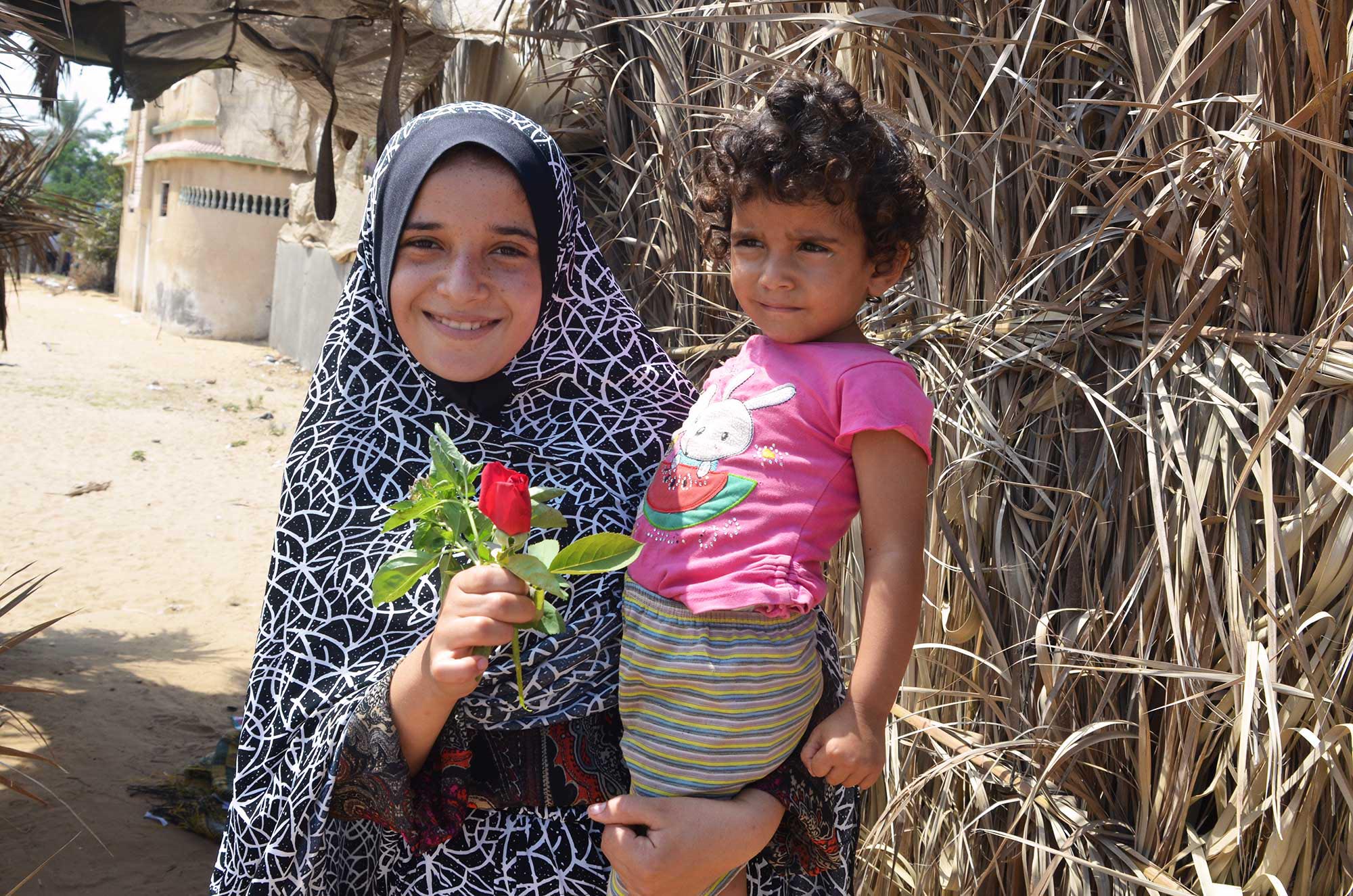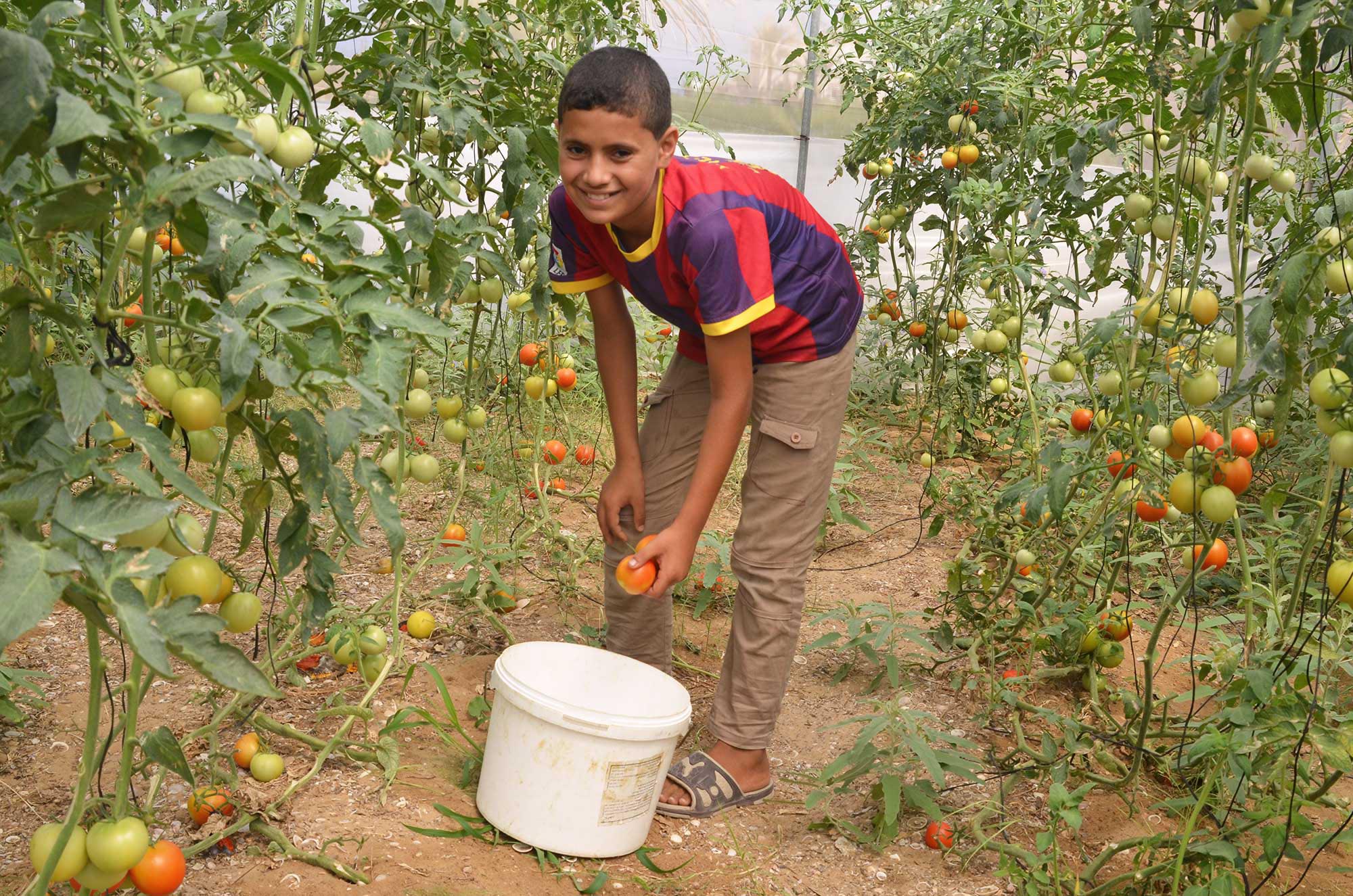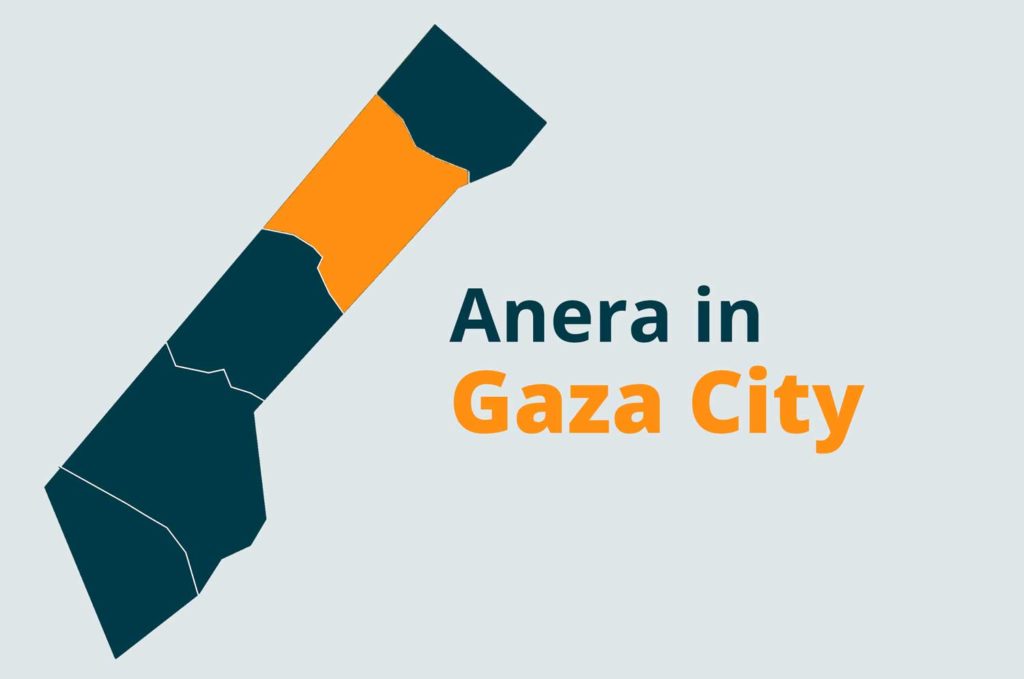Aug, 2017
Ruby-red, organic tomatoes are flourishing inside Gaza greenhouses. Now farmers can cook delicious dishes, share with their neighbors, and sell the surplus in the market.
“We love watching our tomatoes grow and turn from green to red,” says Sabah Fayad as she looks up at her greenhouse in Deir El Balah, Gaza. Her tomatoes will be ripe in 20 days. Sabah’s family are farmers by blood, having inherited their land. “We tend to our plants every day with joy.”
The Fayad house is unfinished, but at its entrance they have planted roses and grapes. Vines from the grapes climb up the walls of their shed, where the family escapes the heat during Gaza’s constant power cuts.
With the new greenhouse, Sabah can make fresh tomato paste as she prepares meals for her five children. There are eight members of her household, including her mother-in-law who suffers from a severe disability. “This project will change our lives in many ways,” she says. “I’ll cook delicious dishes with these tomatoes.”


In Gaza’s bleak economy, Sabah’s husband Ahed struggles to earn an income and provide for his family. He’s managed to make a little money by buying fish from dealers at the fish market and selling it in his neighborhood. Profits are meager, though, and sometime fish can be hard to come by due to heavy pollution near Gaza’s shore—a problem triggered by the electricity crisis, as sewage plants without power have to dump raw sewage into the sea.
Fortunately, Sabah’s new family greenhouse is providing some hope and income. “This piece of land was empty,” she says. “Now, the new project has provided us with a job opportunity and has allowed us to work our own land. This greenhouse will provide us with healthy food to eat and to sell, so we can buy other things the family needs.”
Neighboring Farmer Gets a Greenhouse of her Own
Not far from Sabah’s farm, Nawal Fayad has her own greenhouse which she cares for every morning. The youngest of her seven children, twins Rayan and Abdallah, enjoy helping her the most—despite having injuries from a recent car accident.
Nawal lives in a makeshift house with her sister, and they sell vegetables in a booth at the market in the heart of the city. “We are pleased with the new greenhouse,” says Nawal. “It has helped us keep farming, the business of our ancestors.” Now Nawal’s greenhouse is full of bountiful tomatoes, a valuable crop that’s central to Palestinian cuisine.


The project has helped Nawal’s family survive despite the poor economy in Gaza. “We send crates of tomatoes to our neighbors and to our relatives,” says Nawal. The revenue has helped the family pay for health care for their ill mother.
The Gaza Food Security Program provides impoverished families in Zeitoun and Deir El Balah with greenhouses, farming supplies, water tanks, irrigation systems, seedlings, training on farming best practices and solar cookers. The cookers reduce dependency on electricity and high-priced cooking fuel. The greenhouses allow families to extend the growing season and increase production with limited space and means.


